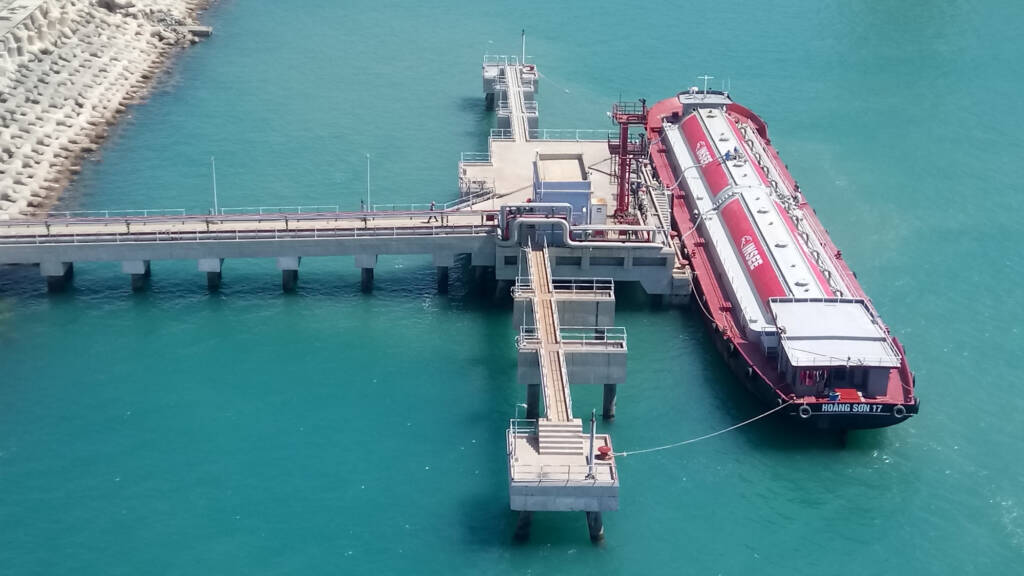TTO – After a period of efforts to implement solutions to consume ash and slag, on November 14, 2020, Orienwell’s ship carrying 1,750 tons of fly ash (accounting for about 70-80% of the composition of ash and slag) left the factory’s oil port. Vinh Tan 2 thermal power plant for consumption.

This marks an important milestone in solving the basic problem of ash and slag consumption of Vinh Tan 2 Thermal Power Plant. At noon on November 15, continue the second train (ship of Hoang Son Company) with a tonnage of 1,600 tons docked at Vinh Tan 2 oil port to get fly ash for consumption.
After a period of efforts, the Vietnam Maritime Administration decided to add capacity to the oil port of Vinh Tan 2 Thermal Power Plant, allowing fly ash ships to dock at Vinh Tan 2 oil port. Thus, legal procedures For fly ash ships to dock at Vinh Tan 2 oil port to export fly ash for consumption, it is ready, creating favorable conditions and hopes to continue promoting Vinh Tan 2 ash consumption.
A representative of Vinh Tan Thermal Power Company (Power Generation Corporation 3 – GENCO 3) said that the promotion of ash consumption is associated with the work of ensuring the safety of the plant during the operation and generation of electricity by Thermal Power Company. Vinh Tan is particularly interested. The transportation and storage of slag at the ash dump is strictly carried out, always operating in accordance with the process.
Previously, fly ash had to be buried
In the waste from burning coal, there are two components: fly ash and furnace bottom slag. Fly ash is the part of dust in coal that does not burn completely, which is blocked by dust filters. The bottom slag is the unburnable soil and rock that must be discharged from the bottom of the furnace.
Previously, at Vinh Tan 2 Thermal Power Plant, the fly ash that could not be exported for consumption was mainly buried or transported by specialized vehicles by road to concrete mixing units, cement additives or unburnt bricks. limited number.
The export of a larger quantity by the factory’s oil port will reduce the pressure on the slag yard and save time in landfilling and transportation.


